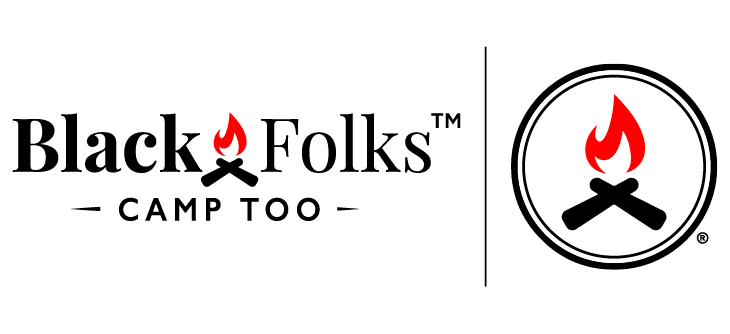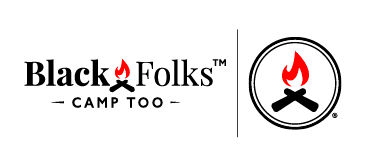Outdoors: Getting Outside with Black Folks Camp Too
This article was written by Emma Castleberry and originally appeared on TheLaurelofAsheville.com
Earl B. Hunter, Jr., founder and president of Black Folks Camp Too, was once a self-described “sports-car-driving, Italian-suit-wearing, private-plane-flying executive that would’ve never gone camping.” But Hunter’s son wanted to see Mount Rushmore, so the two of them took off on an RV road trip of the US in the summer of 2017. They camped at 49 campgrounds in 20 states over the course of three months. “This is where the idea came from,” Hunter says of his business. “I didn’t see any Black folks out there. That drove me to say, ‘Something has to change.’”
Black Folks Camp Too isn’t trying to further segregate the outdoors, which Hunter says is already one of the most segregated places in the world. “Probably more than barbershops and churches,” he says. “What we want is for more Black folks to enjoy the 640 acres of public land that we pay for. Our job is to educate. We’re not here to twist arms, we’re here to twist hearts.”
The education mission at Black Folks Camp Too is threefold. Firstly, the company wants to make the outdoors more accessible to Black people by educating them about how to use recreational resources. But the company also works to educate what Hunter calls “the current lifestylers”—the predominantly white base that uses the outdoors regularly—on why Black people haven’t been using parks, trails and public lands. “We have generational fear,” Hunter explains. “My great-grandmother told my grandmother told my mother told me, ‘You don’t belong in those woods.’ The woods were places where lynchings, cross burnings and intimidation took place.” But in addition to that generational trauma, there is another reason the outdoor recreation space is so white-dominated: “The industry never invited us,” Hunter says.
This is something that Hunter knows well, as he spent many years as an executive in the 114 billion dollar RV industry, part of an outdoor recreation economy that generated nearly 700 billion dollars in consumer spending in 2020. “It’s about educating Black folks, the current lifestyle, and the industry,” says Hunter. “Once we’re all educated, that will allow folks that look like me to decide if they want to enjoy a lifestyle that I think is the dopest.”
The Black Folks Camp Too Digital Education Initiative uses social media posts, videos and partnerships with organizations like North Carolina State Parks and Leave No Trace to promote their mission. Hunter also talks about the exponential effect of educating a single person, who can then educate others. “The greatest thing we can do as a company is to train people in the lifestyle to invite people of color into the outdoors,” he says.
Black Folks Camp Too recently released the Unity Blaze, an iconic image of a campfire that sends an important message. “We need a symbol to say we treat everyone, everywhere, equally,” he says. “I wish we didn’t need one, but we do. When you see that patch or sticker on that car, you know that that person treats everyone, everywhere, equally.”
The company has several ongoing partnerships to spread the Unity Blaze far and wide. It appears on the insoles of a line of Oboz Boots, on flags flying above RV dealerships, and on stickers, patches and apparel that can be purchased on the Black Folks Camp Too website. “If we’re going to encourage more Black folks to go and enjoy the outdoors, we want them to do so with any and everybody,” Hunter says.
Raileigh Duschen, the executive assistant at Black Folks Camp Too, met Hunter while she was working as a wilderness therapy guide for troubled youth in Brevard. “As a woman of color, I know how important it is for me to be a leader in the industry,” she says. “Through working with Black Folks Camp Too, I meet other people of color who ask how they can get involved. I’m just overjoyed to share the knowledge. The most important thing is to educate and inspire.”
Hunter is quick to emphasize that Black Folks Camp Too is not a nonprofit. “We emphatically love saying that we’re a business,” he says. “Being a business is going to ensure that we’re sincere, meaningful, measurable and sustainable in the marketplace.”
While Black Folks Camp Too is sometimes misidentified as a consulting firm or a guiding company, the best way to describe the business is as “a world changer,” Hunter says. “We have an opportunity to change the world and we’re going to do that through the outdoors. This is not a regional vision or even a state vision—this is a world vision.”
For more information, visit BlackFolksCampToo.com. Hunter will present at the Sierra Club WENOCA meeting on Thursday, January 6, at 7 p.m.








